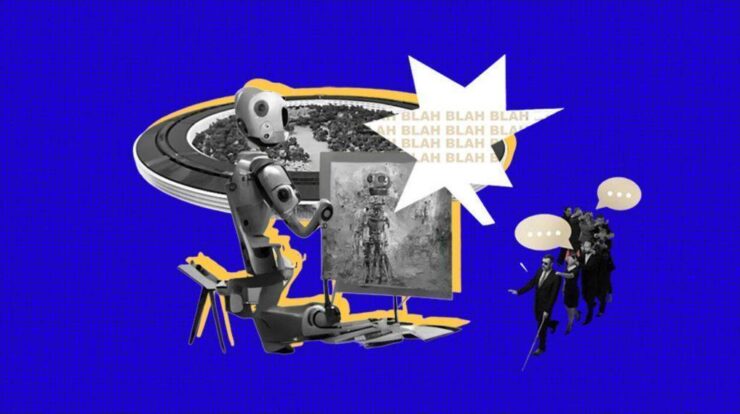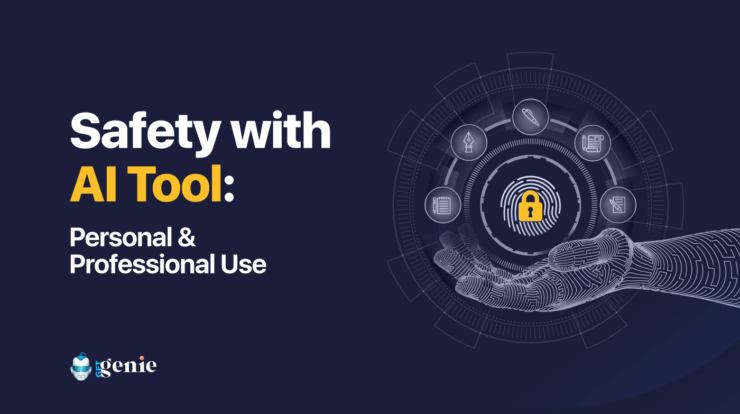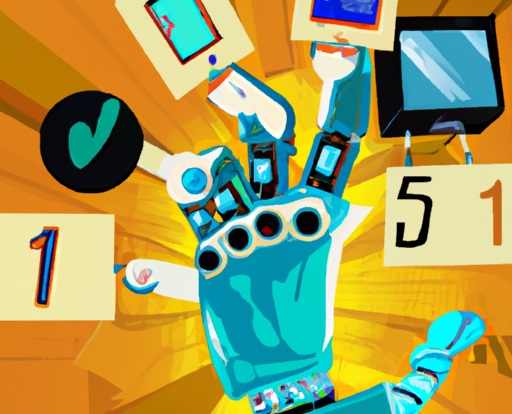
Imagine a world where authors and co-writers are no longer humans, but artificial intelligence. The rise of AI has sparked numerous debates and raised intriguing questions, including one that lingers on the minds of aspiring authors and curious readers alike: is it illegal to publish a book written by AI? This captivating topic explores the legal implications and challenges surrounding AI-generated content, shedding light on a grey area that blurs the lines between human creativity and intelligent technology.
Copyright Laws and AI-generated Content
AI technology has made significant advancements in recent years, raising important questions about the intersection between copyright laws and AI-generated content. As AI algorithms become more sophisticated and capable of producing original works, it is crucial to understand how copyright protection applies to these creations.
Copyright Protection for AI-generated Content
Copyright laws are designed to protect original works of authorship. Traditionally, copyright protection has been granted to human authors, but with the emergence of AI-generated content, there is a need to redefine the concept of an author. Currently, copyright laws in most jurisdictions do not explicitly address AI-generated content, leading to ambiguity and uncertainty.
To ensure adequate protection for AI-generated content, legislators and policymakers must consider whether AI systems can be recognized as authors and whether the works they produce are eligible for copyright protection. This raises important questions about the level of creativity and human-like attributes required for an AI system to be considered an author.
Ownership of AI-generated Content
ownership of AI-generated content is another complex issue that arises in the context of copyright laws. In traditional authorship, the author owns the copyright to their creative work. However, when it comes to AI-generated content, the question of ownership becomes more nuanced. Should the owner of the AI system be considered the owner of the content it produces, or does ownership lie with the person who trained or programmed the AI?
To resolve this issue, it is essential to establish clear guidelines and legal frameworks that address the ownership rights of AI-generated content. These guidelines should consider factors such as the level of human involvement in the content creation process and the purpose for which the AI system was trained.
Fair Use and AI-generated Content
Fair use is a doctrine that allows limited use of copyrighted material without permission from the copyright holder. It aims to strike a balance between the rights of copyright holders and the public’s interest in accessing and using creative works. However, the application of fair use principles to AI-generated content raises unique challenges.
Determining fair use in the context of AI-generated content requires careful consideration of factors such as the purpose and character of the use, the nature of the copyrighted work, the amount and substantiality of the portion used, and the effect of the use on the market for the original work. It is crucial to analyze these factors and develop guidelines that address the fair use of AI-generated content, ensuring that the rights of both creators and users are respected.
Plagiarism and AI-generated Content
Plagiarism is the act of using someone else’s work without proper attribution or permission. With the proliferation of AI-generated content, there is a concern that such content could be used to plagiarize existing works or to create deceptive or misleading content.
To combat plagiarism in AI-generated content, it is necessary to establish robust systems for detecting and addressing instances of unauthorized use or misappropriation. Additionally, educating users and content creators about the ethical implications of using AI-generated content without proper attribution can contribute to minimizing plagiarism issues in the digital landscape.
Liability and Responsibility
As AI technology becomes more prevalent in content creation, questions of liability and responsibility for AI-generated content arise. It is essential to establish clear legal frameworks and guidelines to determine the liability of AI systems and the individuals or entities involved in their creation and deployment.
Legal Liability for AI-generated Content
Determining legal liability for AI-generated content is a complex task that requires careful consideration of various factors. While AI systems can autonomously generate content, they are ultimately created and operated by individuals or organizations. Therefore, establishing liability should involve assessing the level of control, intent, and negligence of the parties involved.
It is crucial to establish legal frameworks that assign liability to the appropriate parties in cases of AI-generated content that infringes copyrights, defames individuals, or violates other legal rights. This can help protect the rights of content creators, limit potential harm, and ensure accountability in the digital age.
Attribution and Accountability
Ensuring proper attribution and accountability for AI-generated content is vital in maintaining transparency and ethical standards in the digital landscape. AI systems may produce content that appears indistinguishable from human-created works, raising questions about how to attribute these creations correctly.
To address these concerns, it is important to develop robust mechanisms for attributing AI-generated content to the AI system and its creators. This can involve the use of metadata, watermarks, or other technological solutions that provide clear attribution. Additionally, establishing legal and ethical responsibilities for content creators and AI system operators can help uphold accountability and prevent misuse of AI-generated content.
Ethical Considerations for AI-generated Content
Ethics play a crucial role in the development and deployment of AI systems that generate content. It is essential to consider the potential societal impact of AI-generated content and to uphold ethical guidelines and principles throughout the content creation process.
Ethical considerations may include ensuring fairness, avoiding bias, respecting privacy and consent, and promoting transparency and disclosure. By incorporating ethical frameworks into the design and operation of AI systems, we can mitigate potential risks and promote responsible AI-generated content that benefits society as a whole.
Intellectual Property Rights
The emergence of AI-generated content raises important questions regarding intellectual property rights. How should patents and trademarks be granted for AI-generated inventions or creations? Can AI systems be recognized as inventors or authors?
Patents and Trademarks for AI-generated Content
Patents and trademarks protect inventions and distinctive signs, respectively. However, granting intellectual property (IP) rights to AI-generated content presents unique challenges. While AI systems can generate innovative and novel ideas, they lack legal personality and the ability to own IP rights.
To address this issue, legal frameworks should be revised to accommodate AI-generated inventions and creations. This may involve establishing new requirements for granting patents and trademarks, considering the role of AI in the creative process, and striking a balance between incentivizing innovation and ensuring fair access to AI-generated content.
Challenges in Granting IP Rights to AI
Granting IP rights to AI-generated content faces several challenges. Traditional IP laws were designed to protect human creations, and adapting these laws to accommodate AI systems requires careful consideration of technical, legal, and ethical factors.
One challenge is determining the level of creativity and inventiveness required for an AI-generated work to be eligible for IP protection. Additionally, the issue of ownership and the role of human involvement in the content creation process must be addressed. Developing a comprehensive framework that balances the interests of creators, AI systems, and society as a whole is essential to ensure a fair and harmonious IP ecosystem.
AI as an Inventor or Author
Recognizing AI systems as inventors or authors poses significant legal and philosophical questions. While AI systems can autonomously generate content, they lack the legal personality and moral agency traditionally associated with inventors or authors.
Defining the role and status of AI in the creative process is crucial to determine how IP rights are granted and enforced. This requires a multidisciplinary effort involving legal experts, AI researchers, ethicists, and policymakers to establish a comprehensive framework that recognizes the contributions of AI systems while upholding legal and ethical principles.
Contractual Agreements
In the context of AI-generated content, contractual agreements play a crucial role in defining the rights and responsibilities of the parties involved. Clear and well-defined contracts are necessary to address the unique challenges posed by AI systems in content creation.
Contracts with AI Systems
When engaging with AI systems for the creation of content, it is essential to establish clear contractual agreements that outline the terms of use, ownership, and liability. These agreements should address issues of content ownership, licensing, attribution, and indemnification.
By incorporating contractual provisions specific to AI-generated content, content creators and organizations using AI systems can ensure that their rights and obligations are protected. These agreements should be carefully drafted with legal counsel and take into consideration the specific capabilities and limitations of the AI system in question.
Rights and Royalties for AI-generated Content
Determining the rights and royalties associated with AI-generated content is another important consideration. While AI systems can play a significant role in content creation, the contributions of human creators should also be acknowledged and remunerated.
Contractual agreements can establish the distribution of rights and royalties between AI systems and human creators. These agreements should consider factors such as the level of human involvement, the value added by AI technologies, and the potential commercial success of the content. By striking a fair balance, contractual agreements can incentivize creativity while ensuring appropriate compensation for all contributors.
Data Privacy and Ethics
The use of AI systems in generating content raises important concerns regarding data privacy and ethical considerations. As AI algorithms rely on vast amounts of data to generate content, it is crucial to address these issues to protect user privacy and ensure ethical guidelines are followed.
Data Privacy Concerns in AI-generated Content
AI algorithms often require access to large datasets, including personal or sensitive information, to generate content. This poses challenges in terms of data privacy and the protection of user information.
To address these concerns, robust data protection laws and privacy regulations must be in place. Organizations using AI systems for content generation should comply with these regulations, ensuring transparency, consent, and secure storage of user data. Additionally, technical measures such as data anonymization and encryption can help minimize the risk of data breaches and unauthorized access.
Ethical Guidelines for AI-generated Content
Ethical considerations are paramount when it comes to AI-generated content. AI systems that generate content may encounter situations that require ethical decision-making, such as avoiding biased or harmful content and respecting user privacy.
Establishing ethical guidelines for the development and deployment of AI systems can help ensure that AI-generated content aligns with societal values and ethical principles. These guidelines can address issues such as bias mitigation, transparency, accountability, and user consent. Adhering to these principles can help build trust in AI-generated content and promote responsible and ethical practices.
Regulatory Frameworks
Given the potential impact of AI-generated content, the existence of specific regulatory frameworks is crucial to address legal and ethical concerns. While specific regulations may vary across jurisdictions, a comprehensive framework is necessary to ensure consistency and accountability.
Existence of Specific AI Regulations
Currently, the regulatory landscape for AI-generated content varies across jurisdictions. Some countries have implemented specific regulations addressing AI use in various sectors, including content creation. However, many jurisdictions have yet to develop comprehensive frameworks that specifically address the legal and ethical challenges posed by AI-generated content.
To promote a consistent and harmonized approach, stakeholders, including legislators, policymakers, and experts from various fields, should collaborate to establish specific regulations for AI-generated content. These regulations should account for the unique characteristics and challenges of AI systems, while also considering international standards and best practices.
Potential Regulation in Publishing AI-generated Content
As AI-generated content becomes more prevalent in the publishing industry, specific regulations may be necessary to safeguard the rights of content creators and users. These regulations can address issues such as ownership, attribution, liability, data privacy, and ethical considerations.
By establishing clear and enforceable regulations, publishers, authors, and users of AI-generated content can have a legal framework that protects their rights and ensures responsible and ethical practices. Such regulations can also contribute to fostering innovation and promoting public trust in AI-generated content.
Artistic and Literary Value
The emergence of AI-generated content poses important questions about its artistic and literary value. Is AI-authored art and literature comparable to human-created works? How does AI-generated content impact human creativity?
Recognizing AI-authored Art and Literature
One of the key debates surrounding AI-generated content is whether it can be recognized as art or literature. While AI algorithms can produce impressive and creative works, the question of artistic intent and human emotion remains crucial in defining artistic and literary value.
The recognition and evaluation of AI-generated art and literature require a nuanced approach that considers factors such as aesthetic appeal, emotional impact, and cultural significance. Establishing criteria that blend technical prowess and human-like qualities can help determine the artistic merit of AI-generated works.
Impact on Human Creativity
AI-generated content has the potential to impact human creativity in various ways. While AI can assist creators by generating ideas, expanding creative possibilities, and automating certain tasks, it also raises concerns about the role of human creators in the creative process.
The interaction between AI systems and human creators can lead to new modes of artistic expression and collaboration. However, it is crucial to strike a balance between using AI as a tool and preserving the unique human perspective and creative intuition. By leveraging the capabilities of AI while nurturing human creativity, creators can harness the full potential of AI-generated content to advance the field of art and literature.
Public Perception and Acceptance
The acceptance of AI-generated books and other forms of content by the public is an important factor to consider. How do readers perceive and value AI-generated works? What are the concerns and criticisms surrounding AI-generated content?
Acceptance of AI-authored Books
The acceptance of AI-generated books by readers can vary depending on cultural, social, and personal factors. Some readers may appreciate the novelty and experimentation offered by AI-generated content, while others may prefer the human touch and emotional depth found in traditional works.
Building trust and acceptance of AI-generated books involves educating the public about the capabilities and limitations of AI systems, showcasing the artistic value of AI-generated works, and fostering open dialogues between creators and readers. Through these efforts, AI-generated books can carve out a unique place in the literary landscape.
Concerns and Criticisms
As with any emerging technology, AI-generated content has faced its share of concerns and criticisms. Some worry that AI-generated works lack originality, human emotion, or the ability to convey complex themes. Others express concerns about job displacement, copyright infringement, and the ethical implications of AI in the creative domain.
Acknowledging and addressing these concerns is crucial in shaping public perception and acceptance of AI-generated content. Open discussions, transparency, and the development of robust frameworks that protect the rights of creators and users can help mitigate these concerns and promote a more inclusive and ethically responsible approach to AI-generated content.
Future Implications and Challenges
The development and advancement of AI-generated content present exciting opportunities, but also pose several challenges that need to be addressed.
Advancements in AI-generated Content
The field of AI-generated content is evolving rapidly, with continuous advancements in AI algorithms, natural language processing, and machine learning. These advancements have the potential to improve the quality and creativity of AI-generated works, blurring the lines between human creativity and machine-generated content.
As AI technologies continue to progress, it is essential to monitor their impact on content creation, creativity, and society as a whole. Staying updated with the latest advancements and actively engaging in ongoing discussions will help navigate the future implications and challenges of AI-generated content.
AI’s Role in the Publishing Industry
AI-generated content has the potential to reshape the publishing industry, offering new possibilities for authors, publishers, and readers. AI systems can assist in tasks such as content editing, recommendation engines, and personalized content creation.
Understanding the role of AI in the publishing industry requires adapting to changing business models, exploring new revenue streams, and embracing collaborations between human creators and AI systems. By leveraging AI technologies effectively, the publishing industry can adapt to the evolving landscape, provide enhanced experiences for readers, and foster innovation in content creation and distribution.
Key Challenges and Considerations
Several challenges and considerations need to be addressed as AI-generated content becomes more prevalent. These challenges include legal and ethical frameworks, copyright protection, ownership rights, liability, data privacy, and public perception.
To effectively tackle these challenges, interdisciplinary collaboration and a multisectoral approach are crucial. Legislators, policymakers, researchers, ethicists, and industry stakeholders must work together to develop comprehensive frameworks, guidelines, and regulations that address the unique characteristics of AI-generated content while protecting the interests of creators, users, and society as a whole. Open dialogue and ongoing research will be key to ensuring that AI-generated content continues to evolve in a responsible, ethical, and beneficial manner.
Conclusion
AI-generated content presents exciting possibilities for the publishing industry and creative expression. However, navigating the legal, ethical, and practical implications of AI-generated content is essential to protect the interests of creators, users, and society.
By establishing clear guidelines, frameworks, and regulations, lawmakers and policymakers can ensure adequate copyright protection, ownership rights, and accountability for AI-generated content. Ethical considerations must be integrated into the development and use of AI systems to promote responsible and transparent practices.
Through open dialogue, collaboration, and ongoing research, stakeholders can address the challenges posed by AI-generated content and harness its potential to drive innovation, enhance creativity, and shape the future of the publishing industry. By fostering a harmonious relationship between AI systems and human creators, we can maintain the integrity and diversity of artistic and literary expression while embracing the transformative power of AI.






